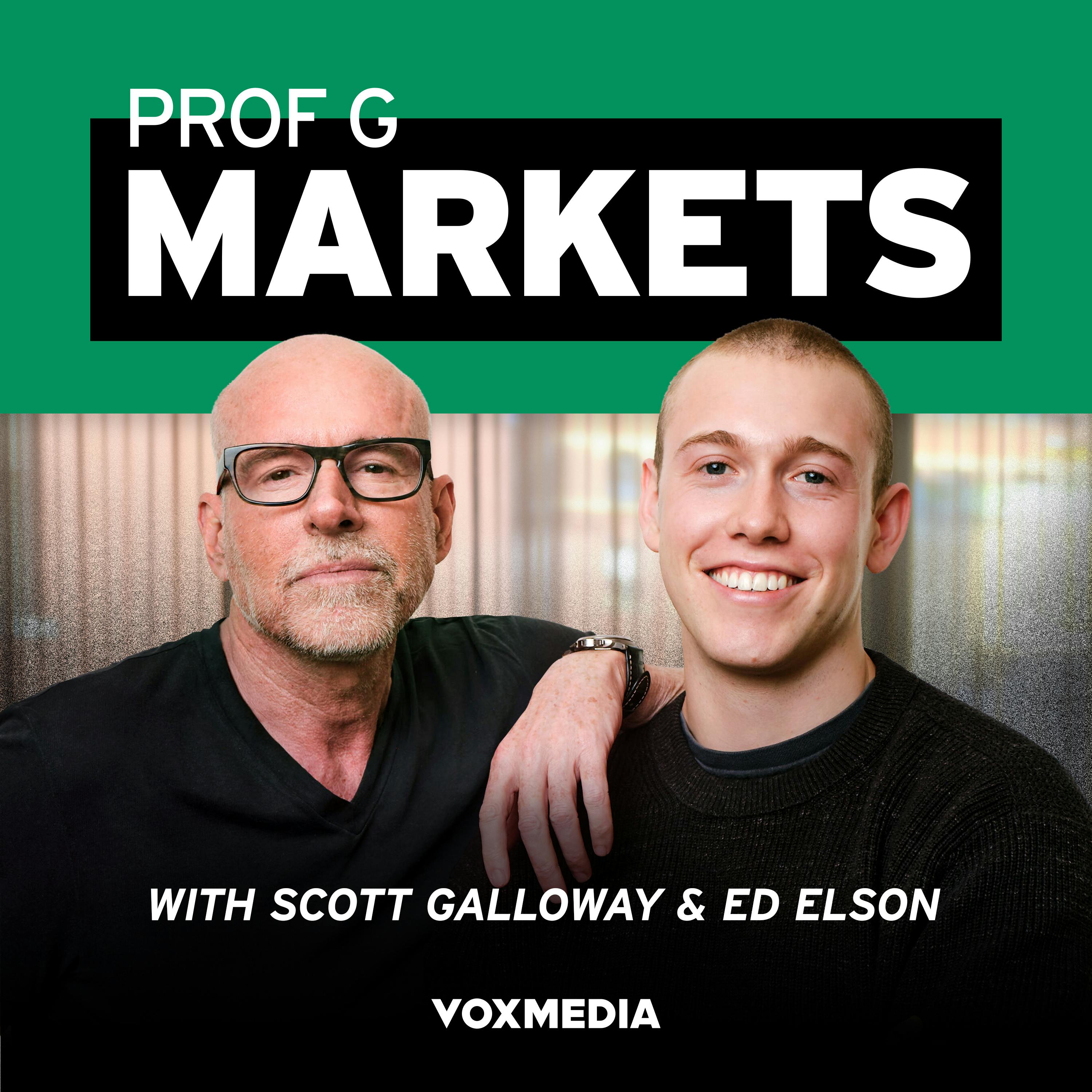
That's Life, I Swear
Every Wednesday, join Rick Barron as he unravels the intricate threads of life's most captivating stories. From heart-pounding political dramas to the awe-inspiring challenges of climate change, he explores the topics that shape our world and define our era.
But this isn't just another talk show. Rick delves deep into the human psyche, examining our beliefs, behaviors, and the obstacles we overcome. He celebrates our triumphs and embraces our imperfections, uncovering the profound lessons hidden in everyday experiences.
The episodes are a journey of self-discovery as he shares stories that mirror our collective identity. These tales aren't just entertaining – they're a reflection of who we are, who we were, and who we aspire to be. They carry the weight of our ancestral legacy, the fire of our dreams, and the depths of our pain.
With each episode, you'll confront your deepest anxieties about yourself, your place in the world, and the future that awaits us all. In understanding these complexities, you'll find inspiration, connection, and perhaps even transformation.
"That's Life, I Swear" isn't just a podcast – it's a weekly rendezvous with the extraordinary nature of ordinary life. Subscribe now, wherever you get your podcasts, and join Rick on this unforgettable exploration of the human experience. After all, that's life, I swear.
That's Life, I Swear
Kyla Scanlon: Gen Z’s Economic Guru Adviser
Kyla Scanlon is demystifying the most complicated things about economics, one TikTok video at a time.
1. Kyla Scanlon on Gen Z's Money Worries and Approach to Investing [YouTube]
2. Kyla Scanlon — State of the Economy Really that Bad? With Scott Galloway [YoutTube]
3. Are We Still In A 'Vibecession'? with Kyla Scanlon [YouTube]
4. Mary C. Daly, President and Chief Executive Officer [Federal Reserve Bank of San Francisco]
5. On Deck [LinkedIn]
Contact That's Life, I Swear
- Visit my website: https://www.thatslifeiswear.com
- Twitter at @RedPhantom
- Bluesky at @rickbarron.bsky.social
- Email us at https://www.thatslifeiswear.com/contact/
Episode Review
- Submit on Apple Podcast
- Submit on That's Life, I Swear website
Other topics?
- Do you have topics of interest you'd like to hear for future podcasts? Please email us
Listen to podcast audios
- Apple https://apple.co/3MAFxhb
- Spotify https://spoti.fi/3xCzww4
- My Website: https://bit.ly/39CE9MB
Other
- Music and/or Sound Effects are courtesy of Pixabay
Thank you for following the That's Life I Swear podcast!!
⏱️ 15 min read
She’s just 27, but her economic insights have caught the attention of the White House, the Fed, and an entire generation. Meet Kyla Scanlon, the Gen Z economic adviser who coined the term 'vibecession.' While traditional economists scramble to make sense of shifting tides, Scanlon has her finger on the pulse of a new economic reality—and the experts are listening. This young voice is redefining the way we think about the economy.
Welcome to That's Life, I Swear. This podcast is about life's happenings in this world that conjure up such words as intriguing, frightening, life-changing, inspiring, and more. I'm Rick Barron your host.
That said, here's the rest of this story
Kyla Scanlon is a prominent financial educator, content creator, and the author of "In This Economy? How Money and Markets Really Work." She has gained widespread recognition for her ability to break down complex economic topics in a way that is both accessible and engaging, particularly for younger audiences who may not have a traditional background in finance. Scanlon’s unique blend of humor, clarity, and expertise has made her a rising voice in the world of economic education.
Her book, "In This Economy?" explores the inner workings of money, markets, and the economy, presenting them through a relatable lens that appeals to both novices and seasoned market watchers. She leverages her deep understanding of economics to demystify the concepts that underpin financial systems, while also providing real-world examples of how these forces impact everyday life. Her ability to connect macroeconomic trends to individual experiences has made the book especially timely in today’s volatile market climate.
Kyla has gained particular notoriety as of late due to her engaging presence on social media platforms, including TikTok and Twitter, where she simplifies economic news and trends for a rapidly growing audience. Her educational videos have gone viral, sparking important conversations about inflation, market bubbles, and central banking policies in a format that resonates with today’s digital-first generations.
What sets Scanlon apart is her keen sense of economic storytelling, drawing from academic theory and pop culture, behavioral economics, and real-time market events. In an era of increasing financial uncertainty, she has become a trusted voice for many seeking to understand better how the global economy works and how it affects their financial decisions. Her insights, delivered with wit and a fresh perspective, have resonated with those disillusioned by traditional, jargon-heavy financial content, marking her as an influential figure in economic literacy today.
Now, despite her substantial social media presence, the term "influencer" doesn't sit well with Kyla Scanlon.
With a following in the hundreds of thousands, Scanlon's aim isn't to promote products, except her recently published book on economics. While she's comfortable being referred to as an author, this label only partially captures her diverse activities. Mary Daly, the President of the San Francisco Federal Reserve, suggested "economic commentator" as a fitting description, which Scanlon has since adopted.
In a recent discussion, Scanlon expressed, "I'm open to various titles that resonate with people, but my primary objective is to educate about economics. I utilize social media as a platform to achieve this goal."
At just 27, Kyla Scanlon is revolutionizing the finance industry with her unconventional approach. She's carved out her niche rather than following the traditional path of Wall Street internships or pursuing advanced economics degrees. Her unique brand of financial analysis, covering everything from central bank policies to real estate trends and even the economics of online dating platforms, resonates strongly with a younger audience. Scanlon leverages various social media channels - TikTok, Instagram, X (formerly Twitter), YouTube - alongside more traditional mediums like Substack and podcasting to disseminate her insights.
Scanlon gained particular notoriety in 2022 for introducing the concept of a "vibecession." This term encapsulated the paradoxical situation where economic indicators appeared optimistic, yet public sentiment remained pessimistic. As she aptly put it, the overall "vibe" of the economy felt off, despite the data suggesting otherwise.
Her coinage sparked widespread discussion in economic circles. Renowned figures, including Nobel laureate Paul Krugman and former U.S. Secretary of Labor Robert Reich, engaged in the debate over the validity of this "vibecession." The concept's impact extended beyond academic discourse, with major financial institutions like UBS and Fidelity incorporating explanations of the term into their client communications.
Scanlon's journey began in a small town near Louisville, Kentucky, where she harbored dreams of broadening her horizons beyond local boundaries. Her foray into digital content creation coincided with the onset of the COVID-19 pandemic, when she started producing concise, informative videos.
Fast forward to today, and Scanlon's influence has grown exponentially. Her platform has become so significant that she now conducts interviews with high-ranking officials from the Federal Reserve and the White House, who are keen to connect with her expansive audience.
Much of Scanlon's analytical work is informed by her experiences as a young adult navigating life’s complexity. She explores topics that resonate with her peers, such as the intricacies of obtaining health insurance after aging out of parental coverage, or the challenges of entering the housing market in the current economic climate.
Reflecting on her approach, Scanlon mused, "At times, my work feels like it straddles the line between economics and cultural anthropology." This unique perspective allows her to blend economic analysis with real-world, relatable scenarios.
Scanlon's emergence as a financial commentator aligns with a significant shift in how Americans engage with financial information. Since the pandemic, millions have entered the stock market, moving away from traditional sources like cable TV and newspapers for their financial news.
Her journey into the world of finance began early. Scanlon was a voracious reader as a youngster, making weekly excursions to the local library where she'd borrow numerous books. Her parents, a personal trainer father and an insurance professional mother, fostered an environment of learning. Interestingly, finance seems to run in the family, with her younger sibling now working as a financial analyst for the retail giant Kroger.
Scanlon's hands-on experience with finance started in her teens when her father set up a custodial account for her. This opportunity sparked her interest, leading her to self-educate on stock option trading.
Her academic pursuits were equally impressive. Awarded a full scholarship to Western Kentucky University, Scanlon ambitiously pursued three majors simultaneously, as one would do: financial management, economics, and business-data analytics. Alongside her studies, she maintained a blog titled "Scanlon on Stocks." Although the blog's readership was limited, with her father often being the most dedicated - and sometimes only - follower, it laid the groundwork for her future career.
In 2017, Scanlon's summer internship at a Louisville car dealership proved to be a pivotal experience. Despite excelling in sales, moving over 30 vehicles in just a few months, she became increasingly concerned about the financial literacy of the average consumer.
Reflecting on this time, Scanlon shared, "It struck me as alarming that we were facilitating significant purchases for people who often didn't grasp basic financial concepts like interest rates." This realization ignited her passion for financial education.
After graduating in 2019, Scanlon relocated to Los Angeles to join asset management firm Capital Group in their rotation program. However, her stint in traditional finance was brief. After less than two years, she made a bold career pivot, leaving Capital to join On Deck, a San Francisco-based startup.
At On Deck, which was developing an online platform for education and professional networking, Scanlon took on the challenge of creating a comprehensive finance curriculum. This role aligned perfectly with her newfound mission to improve financial literacy, allowing her to combine her expertise in finance with her desire to educate others.
While maintaining her day job, Scanlon devoted her free time to creating content, penning blog posts and producing TikTok videos. Her breakthrough came in 2021 when her commentary on the GameStop stock phenomenon gained significant traction. She expanded her online presence with humorous skits, impersonating notable figures like Jerome Powell and Elon Musk.
Her growing popularity caught the attention of Bankless, a cryptocurrency company, which offered her a content creation deal in the autumn of that year. This opportunity prompted Scanlon to take a leap of faith, leaving her position at On Deck to pursue content creation as a full-time career.
In the summer of 2022, amidst economic turmoil marked by decades-high inflation and the stock market's worst performance since 2008, Scanlon introduced the term "vibecession" in her Substack newsletter. This concept resonated widely, leading to an op-ed in The New York Times.
The op-ed caught the eye of publishing giant Penguin Random House, resulting in a book deal for Scanlon. Demonstrating remarkable efficiency, she completed a substantial 300-page manuscript in a matter of months.
Scanlon's book, "In This Economy? How Money and Markets Really Work," hit shelves in September of 2024. This accessible guide to economic principles argues for a people-centric approach to economic policy, emphasizing that individuals collectively shape the economy.
To illustrate complex concepts like supply and demand, Scanlon employs relatable analogies, such as her grandmother's banana bread recipe. The book's pages are peppered with playful stick-figure illustrations and hand-drawn diagrams, enhancing its approachability.
Jared Bernstein, who chairs the White House Council of Economic Advisers and was interviewed by Scanlon for a video project, speaks highly of her abilities. "Her talent lies in her deep understanding, which allows her to explain complex topics to anyone," Bernstein remarked, underscoring Scanlon's gift for making economics accessible.
Financially, Scanlon's diverse portfolio of work generates a substantial income. She reports earning six-figure sums annually, though her revenue fluctuates quarterly. Her income streams include speaking engagements, social media advertising, paid Substack subscriptions, consulting work, and other projects. The advance from her book deal provided a significant financial boost. Additionally, Scanlon contributes to Bloomberg Opinion and appears as an expert commentator on major news networks like CNBC and CNN.
Scanlon's work includes creating branded content, such as interviewing economists and business leaders for Public's digital brokerage platform. She also incorporates sponsored material into her channels, like a TikTok video highlighting the American Academy of Arts and Sciences' well-being measurement tool. In line with ethical practices, she always discloses any paid partnerships.
Dividing her time between her family's Kentucky residence and a rented property in Los Angeles, Scanlon maintains a rigorous schedule. Her day typically begins at 3 a.m., allowing her to sync with East Coast business hours. Her content production is prolific and varied: she creates brief videos and tweets on an almost daily basis, while longer-form content such as extended videos, podcast episodes, and Substack essays are released roughly every fortnight.
Despite her demanding work schedule, Scanlon prioritizes physical fitness. She incorporates gym sessions, runs, and cycling into her routine. Her dedication to cycling is particularly noteworthy, with her weekly mileage ranging from 100 to 300 miles.
Oh lord, to be young.
Scanlon's content creation primarily occurs in her home studio. Her videos often feature her boxer mix, Moo, and for a time, moving boxes were visible in the background. To illustrate complex ideas, she frequently employs a whiteboard. Her casual style, often sporting T-shirts, and her numerous tattoos, including one of the compound interest formula, have become part of her signature look.
Operating as a solo entrepreneur, Scanlon recently partnered with United Talent Agency to assist with administrative tasks like scheduling and contract negotiations.
Her career hasn't been without missteps. One setback occurred when an error in exchange-rate economics appeared on page 6 of her book. Addressing this mistake head-on, Scanlon released a video apology and offered a printable correction for readers. The incident deeply affected her.
Reflecting on these challenges, Scanlon noted, "For a young woman in this field, establishing and maintaining credibility is an ongoing struggle. There's a constant need to prove oneself worthy of being taken seriously."
What can we learn from this story? What's the takeaway?
This Gen Z-er is demystifying the most complicated things about the economy, one TikTok video at a time. Klya calls out that at the most basic level, economics is the study of change: how to handle change and how to predict change.
Kyla Scanlon's main mission is making the world of business and economics easy to understand for one and all. What a breath of fresh air.
Well, there you go, my friends; that's life, I swear
For further information regarding the material covered in this episode, I invite you to visit my website, which you can find on Apple Podcasts/iTunes for show notes and the episode transcript.
As always, I thank you for the privilege of you listening and your interest.
Be sure to subscribe here or wherever you get your podcast so you don't miss an episode. See you soon.














